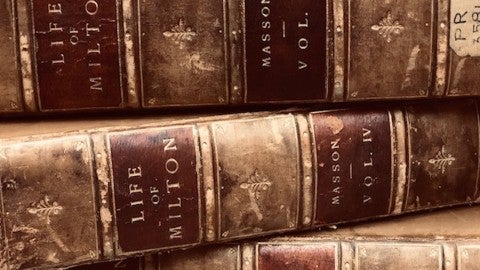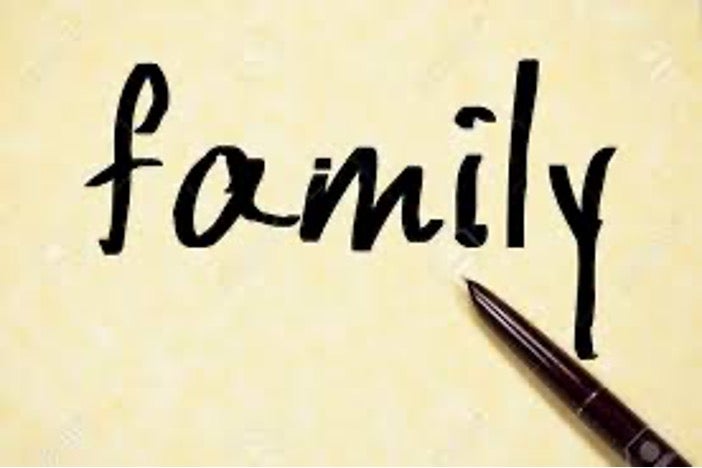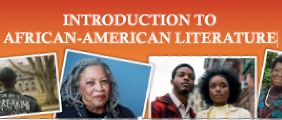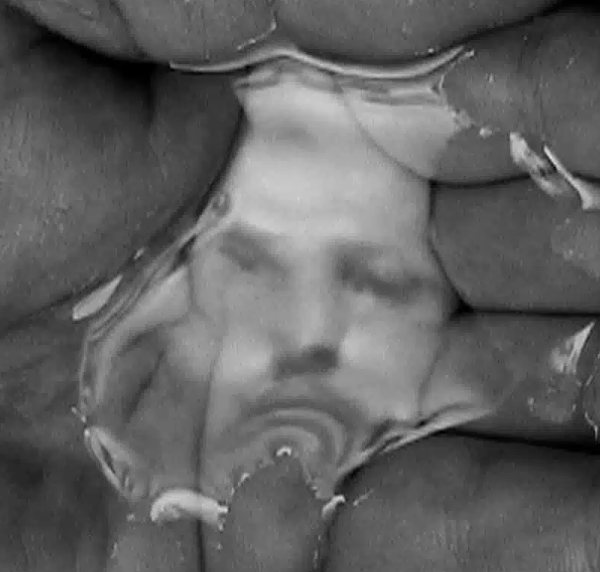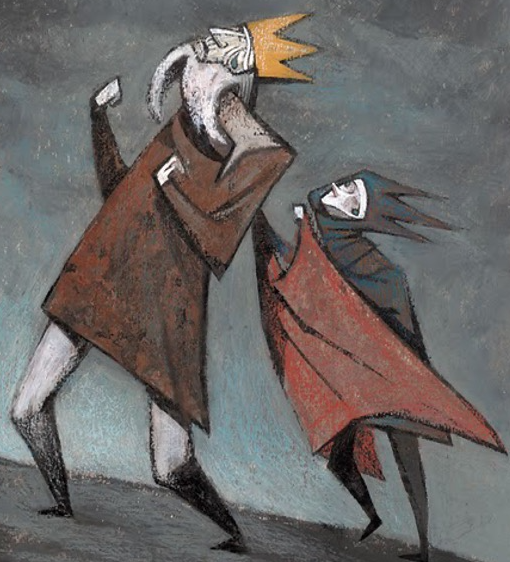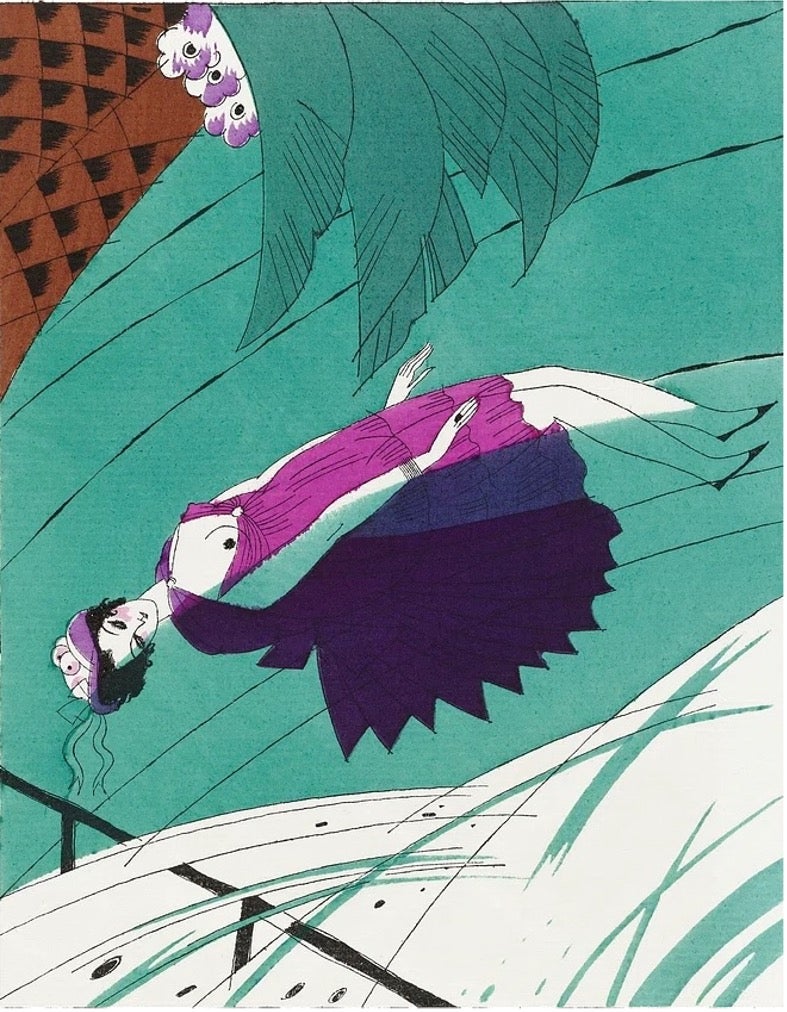 ENGL 101*: What is a Fact?
ENGL 101*: What is a Fact?
Monday, Wednesday, Friday 10:00-10:50 a.m.
>>Instructor: Timothy Morton
Whether in science, social sciences or humanities, all students benefit from this essential training in how to discover and interpret the world and its facts. Training in discovery and interpretation is the role of the humanities and literary studies. This class teaches critical thinking and imagination, the fuels of reason.
Satisfies:
*D1
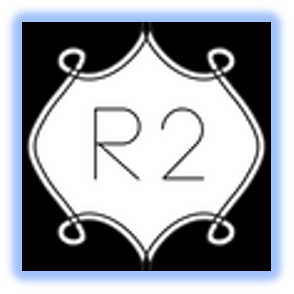 ENGL 114: Literary Editing & Publishing/Rice Review
ENGL 114: Literary Editing & Publishing/Rice Review
Tuesday 6:30-9:20 p.m.
>>Instructor: Ian Schimmel
From the editors of The Rice Review: "R2: The Rice Review is the award-winning literary journal of Rice University. We publish the best poetry, prose, and art produced by Rice undergraduate students, as well as interviews with renowned authors. We also hope to foster a creative writing environment at Rice by hosting on-campus literary events like Open Mic Night and off-campus outings to see visiting authors in Houston. The journal was founded in 2004 by creative writing professor and author Justin Cronin and is published once annually, in the spring."
Taught in the Spring, ENGL 114: Literary Editing & Publishing/The Rice Review is the second course recommended to students desiring practical skills in the fields of literary editing and publishing. Experiential in nature, this class engages students in the real considerations and hands-on experience of publishing The Rice Review. Students will participate in weekly editorial meetings to read and discuss the merits of undergraduate submissions across literature’s three main genres: poetry, fiction, and creative non-fiction.
ENGL 113 is a prerequisite or permission of the instructor is required to register for this course.
Satisfies:
English Creative Writing Concentration (ECRW)
Creative Writing Minor (CREW)
ENGL 200*: Gateways to Literary Study (two sections offered)
Tuesday, Thursday 9:25-10:40 a.m.
>>Instructor: Alexander Regier
Monday, Wednesday, Friday 10:00-10:50 a.m.
>>Instructor: José Aranda
This course is designed for and required of all prospective English majors, and should be taken in the first or sophomore year. Emphasis is on close reading, literary interpretation, and critical writing. Attention is paid to the major genres (poetry, drama, and fiction) across a range of historical periods. Open to all students with priority to declared majors and minors.
Note to all current and potential English majors/minors: Due to the popularity of ENGL 200, if the section of ENGL 200 you want appears to be full, please contact the instructor to receive a "special registration/override” via ESTHER.
Satisfies:
*D1
English major core requirement (ENGL): Training the Imagination
English minor core requirement (ENGM): Training the Imagination
English Creative Writing concentration core requirement (ECRW): Training the Imagination
ENGL 203.001: Topics in Creative Writing: Writing the Family
Tuesday, Thursday 10:50 a.m.-12:05 p.m.
>>Instructor: Andrea Bajani
Anna Karenina famously opens: "All happy families are alike; each unhappy family is unhappy in its own way." No matter the amount of joy or despair there is in a house, writing the family has always meant going straight to fundamental questions. Who are we? Who - or what - do we belong to? Where do we look for protection? What do we want to escape? What is our truth? In order to tell the truth about himself, Franz Kafka had to write a letter to his father--a letter he never delivered. In memoirs, non-fiction, novels, diaries, and poetry, writers like Philip Roth, Annie Ernaux, Joan Didion, Richard Ford, and Kiese Laymon have taken on the topic of family from a range of perspectives, allowing their stories to reach a rare and specific intensity, an inspiration and a tenderness, that is otherwise almost impossible to achieve. In this course, we will read diverse examples of family writing and will compose our own, both following these models and inventing new ones. Seating is limited.
Satisfies:
English Creative Writing Concentration (ECRW)
Creative Writing Minor (CREW)
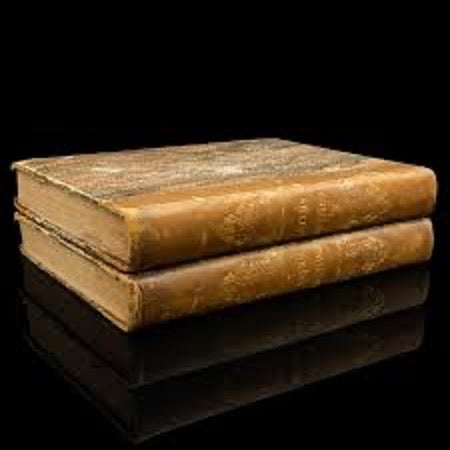 ENGL 210*: Beginnings: British Literature to 1800
ENGL 210*: Beginnings: British Literature to 1800
Tuesday, Thursday 1:00-2:15 p.m.
>>Instructor: Logan Browning
We will read from a variety of genres (lyric and epic poetry, satire, tragedy and comedy, short fiction, essays, travel narrative) and range chronologically from Beowulf (translated by Seamus Heaney) to the prose of the eighteenth century’s Oprah, Dr. Samuel Johnson, and to the comic Beggar’s Opera by John Gay. Our goal will be to understand more clearly what others have thought valuable in each text and why, so that we can understand more fully what evaluative criteria each of us applies to his or her own reading. We will also explore the various ways in which the relations among artist, audience, medium, and historical context manifest themselves in the texts under consideration, and the various strategies that authors have used to direct or control responses to their texts.
Most of the assignments will come from the new 11th edition of the Norton Anthology of English Literature, volumes A, B, and C, which includes Shakespeare’s The Tempest, a play that we will read together.
Requirements: class attendance and participation, six short papers (one to two pages each), and a take-home midterm and final examination.
Satisfies:
*D1
English major core requirement (ENGL): Historical Foundations - periods before 1800
English minor core requirement (ENGM): Historical Foundations - periods before 1800
English major specialization: Literature & Literary History (LLH)
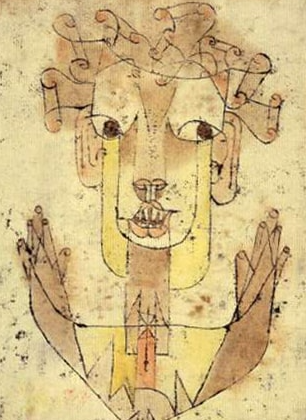 ENGL 211*: British Literature: Romanticism to the 20th Century
ENGL 211*: British Literature: Romanticism to the 20th Century
Monday, Wednesday, Friday 11:00-11:50 a.m.
>>Instructor: Rowan Morar
This course situates English literature from the Romantic period through to the mid-20th Century within the context of the British Empire. Addressing both canonical and minor works primarily of poetry and prose, readers will encounter central literary, cultural, and political issues discussed during the period. These concerns were inevitably tied to the place of Britain within a global world that the empire actively shaped, not only politically but culturally. We begin with poetry from the Romantic period and end with one of the first African novels published in English at the beginning of the twentieth century. What kinds of political problems, cultural desires, and artistic idiosyncrasies shaped works from around 1800 to the middle of the twentieth century? Together we will look at some of the representative figures of British literature and begin to answer these questions. Assessments will include written (three, 3–4-page papers and one 8-10 final) and oral components (brief final paper presentation), as well as participation grades attached to regular discussion posts. Most primary texts will be available through Fondren Library Services, with historical and theoretical works provided on Canvas. All majors and non-majors are welcome!
Satisfies:
*D1
English major core requirement (ENGL): Historical Foundations - periods before 1900
English minor core requirement (ENGM): Historical Foundations - periods before 1900
English major specialization: Literature & Literary History (LLH)
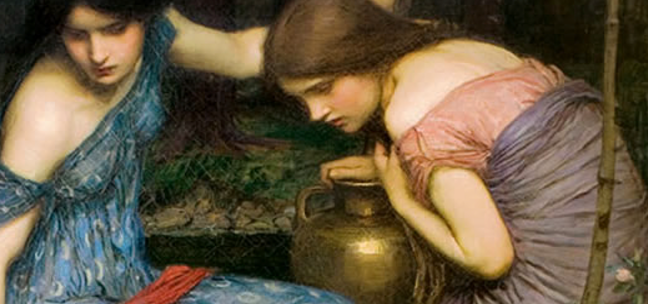
ENGL 211*: British Literature: Romanticism to the 20th Century-Rethinking the British Canon
Monday, Wednesday 2:00-3:15 p.m. (New section added!)
>>Instructor: Amy Huseby
Satisfies:
*D1
English major core requirement (ENGL): Historical Foundations - periods before 1900
English minor core requirement (ENGM): Historical Foundations - periods before 1900
English major specialization: Literature & Literary History (LLH)
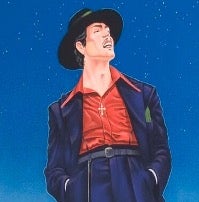 ENGL 230*: Introduction to Latinx Literature (cross-list LALX 230)
ENGL 230*: Introduction to Latinx Literature (cross-list LALX 230)
Monday, Wednesday, Friday 10:00-10:50 a.m.
>>Instructor: Margarita Castromán
This course works to define the contours of Latinx literature and culture by surveying texts drawn from Mexican, Puerto Rican, Dominican, and Cuban migrations to the US. We will begin by broadly outlining the development of Latinx studies and laying out some of its central terms: diaspora, border, exile, migration, assimilation, resistance, identity, mestizaje, etc. Then, working across literary genres (novels, poetry, short stories, and drama) and mediums (comics, film, music, and visual art), we will consider the historical and socio-political conditions that frame Latinx experience and its representation in popular culture. We will explore questions of identity formation and interrogate how these develop in relation to a range of socio-political issues including, but not limited to, migrant labor, femicide, civil unrest, and US military intervention. This course is open to all Rice students.
Satisfies:
*D1
Analyzing Diversity (AD)
English major core requirement (ENGL): Diverse Traditions (Race, Postcolonial & Gender/RPG)
English minor core requirement (ENGM): Diverse Traditions (Race, Postcolonial & Gender/RPG)
English major specializations: Culture & Social Change (CSC); Literature & Literary History (LLH)
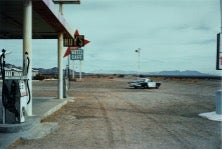 ENGL 260*: What is American Literature?
ENGL 260*: What is American Literature?
Tuesday, Thursday 9:25-10:40 a.m.
>>Instructor: Clinton Williamson
In the third letter of his 1782 epistolary work, Letters from an American Farmer, J. Hector St. John de Crèvecoeur set out to answer "What Is an American?." In this course, we will look not only to the ways in which answers to this question have changed over time but also to how the social constructions of race, gender, and sexuality as mediated by the material relations of class create the very conditions of possibility for posing this question in any given historical moment. Throughout, we will seek to expose the ever-expanding complexity of histories and identities that have gone under the rubric of “American.” Using an interdisciplinary set of texts ranging from the eighteenth century to the present, we will track the multitudinous and heterodox ways in which competing visions of Americanness have historically manifested both as sites of material struggle and as dreams of alternative (and as yet unrealized) futures.
Authors we will read in this course will include but are not limited to David Walker, Herman Melville, Henry David Thoreau, Rebecca Harding Davis, Zora Neale Hurston, William Faulkner, Thomas Pynchon, and Rachel Kushner.
Satisfies:
*D1
Analyzing Diversity (AD)
English major specializations: Culture & Social Change (CSC); Literature & Literary History (LLH)
ENGL 267*: Intro to African American Literature
Monday, Wednesday, Friday 10:00-10:50 a.m.
>>Instructor: Eve Dunbar
Through reading a variety of texts including poetry, essays and fiction by African-American writers from the seventeenth to the twenty-first centuries, participants in this course will develop a working knowledge of key themes and concerns of African-American literature.
This course is designed to introduce students to the rich and complex literary histories and traditions of African-Americans and the ways in which such histories take multiple shapes through space and time. This course is approved for D1 and AD (Analyzing Diversity) and all students are welcome to register.
Satisfies:
*D1
Analyzing Diversity (AD)
English major core requirement (ENGL): Diverse Traditions (Race, Postcolonial & Gender/RPG)
English minor core requirement (ENGM): Diverse Traditions (Race, Postcolonial & Gender/RPG)
English major specializations: Culture & Social Change (CSC); Literature and Literary History (LLH)
 ENGL 272*: Literature & Medicine (cross-list MDHM 272)
ENGL 272*: Literature & Medicine (cross-list MDHM 272)
Monday, Wednesday, Friday 11:00-11:50 a.m.
>>Instructor: Cameron Dezen Hammon
Designed for, but not limited to, students interested in the medical profession, this course introduces the study of medicine through reading imaginative literature--novels, plays, essays, poems--by and about doctors and patients, focusing on understanding ethical issues and on developing critical and interpretive skills.
Satisfies:
*D1
Analyzing Diversity (AD)
English major specializations: Science, Medicine, Environment (SME); Visual & Comparative Media (VCM)
Medical Humanities Minor-approved/eligible (MDHM)
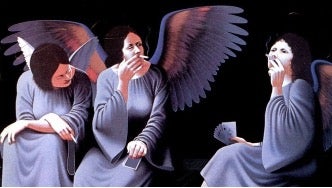 ENGL 274*: Heaven & Hell
ENGL 274*: Heaven & Hell
Tuesday, Thursday 2:30-3:45 p.m.
>>Instructor: Benjamin Parris
In this course, we will explore the close connections between literature and theology at various moments in human history. Reading works of literature that span roughly 3000 years—from the ancient world to our own—we will ask how and why the art of poetry has so often been linked to divine inspiration and acts of creation as well as destruction; what is significant about human struggles with notions of sacred authority, scriptural meaning, punishment and reward; and how competing theological doctrines and heresies alike have shaped written works of art that we now study under the rubric of literature.
We begin with an excerpt from Emily Wilson’s contemporary translation of Homer’s ancient Greek epic, The Odyssey (ca. 750 BCE), focusing on the religious practice of xenia, or the sacred bond of “guest-friendship” mutually owed to guests and their hosts in honor of the gods Zeus and Athena. From there we move to early modern Christian figurations of Heaven, Hell, and Eden in John Milton’s English epic, Paradise Lost (1667 CE) and its many connections with Homer’s ancient Greek epic. The course concludes with a reading of Toni Morrison’s contemporary novel, Song of Solomon (1977 CE), whose title comes from a book of holy love poetry found in the Christian Old Testament. Morrison’s portrait of Black life in America brilliantly blends elements of Homeric epic, Christian theology, and Yoruban spiritual tradition to construct a modern-day quest narrative that is also a kind of pilgrimage for the novel’s central character, Macon “Milkman” Dead III.
Satisfies:
*D1
English major core requirement (ENGL): Historical Foundations - periods before 1800
English minor core requirement (ENGM): Historical Foundations - periods before 1800
English major specializations: Literature & Literary History (LLH)
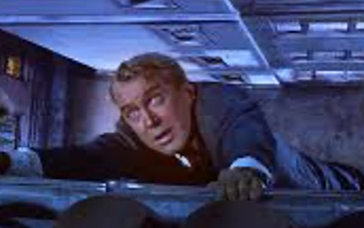 ENGL 286*: Classic & Contemporary Film (cross-list HART 286)
ENGL 286*: Classic & Contemporary Film (cross-list HART 286)
(2 sections offered)
Tuesday, Thursday 10:50 a.m.-12:05 p.m.
Tuesday, Thursday 1:00-2:15 p.m. (New section added)
>>Instructor: Ed Snow
In this course, we’ll study ten of the very best films that have been made around the world since 1930 (we won’t attempt silent cinema). Our goal will be to develop a nuanced appreciation for what it is about film that allows us to engage with it so deeply when it’s at its best. Our focus will be on details and our writing will emphasize description. Assignments and class discussions will typically concentrate on short, key sequences, single frames, and highly visual motifs. “Feelings” will also be essential: the idea is to connect with the heart of these movies, but to do so via “particular knowledge” (William Blake’s term) that requires us always to be looking. No prior expertise in film is necessary for immersion in this course. We’ll learn the nuts and bolts of film language as we proceed.
We’ll also be concerned with how “contemporary film” differs/departs from “classic film”, and with how sharp the divide is—if it exists at all. This distinction will be complicated by the ambiguity of “classic.” Does it mean “old” or “great”? Can a “contemporary” film be a “classic”? Can a “classic” film be “contemporary”? Anchoring these questions will be one certainty: what all the films we’ll watch in this class have in common is their brilliance. Seating in this course is limited.
Satisfies:
*D1
English major specialization: Visual & Comparative Media (VCM)
 ENGL 300.001: Practices of Literary Study (2 sections offered)
ENGL 300.001: Practices of Literary Study (2 sections offered)
Tuesday, Thursday 1:00-2:15 p.m.
>>Instructor: Emily Houlik-Ritchey
Tuesday, Thursday 2:30-3:45 p.m.
>>Instructor: Betty Joseph
This course explores the relation of literary and other cultural texts to key concepts in literary and cultural theory. In their reading and writing, students engage a variety of theoretical problems and modes of reading, among them close textual analysis, critical attention to representation of the (racial, gendered, sexual, class) subject, and what it means to read a text’s relation to philosophical traditions, power relations, history, and empire. ENGL 300 is to be taken after ENGL 200, ideally in the spring of the sophomore or fall of the junior year. Course is open to all students.
Satisfies:
English major core requirement (ENGL): Theoretical Concepts & Methods
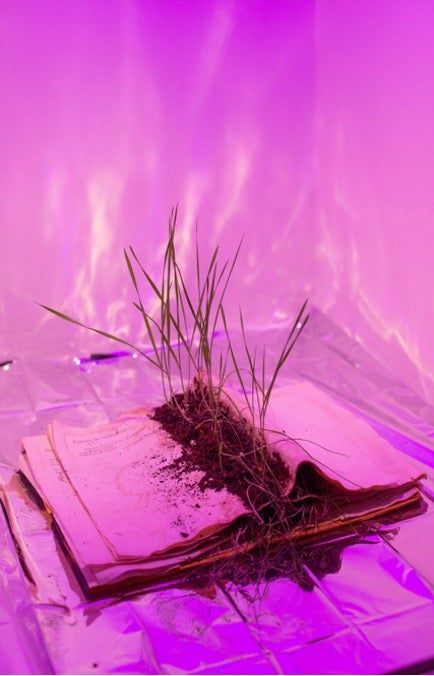 ENGL 301*: Intro to Fiction Writing (2 sections offered)
ENGL 301*: Intro to Fiction Writing (2 sections offered)
Monday 4:00-6:50 p.m.
>>Instructor: Rosa Boshier González
Wednesday 4:00-6:50 p.m.
>>Instructor: Rosa Boshier González
This course explores the relation of literary and other cultural texts to key concepts in literary and cultural theory. In their reading and writing, students engage a variety of theoretical problems and modes of reading, among them close textual analysis, critical attention to representation of the (racial, gendered, sexual, class) subject, and what it means to read a text’s relation to philosophical traditions, power relations, history, and empire. ENGL 300 is to be taken after ENGL 200, ideally in the spring of the sophomore or fall of the junior year. Course is open to all students.
Satisfies:
*D1
English Creative Writing Concentration (ECRW)
Creative Writing Minor (CREW)
 ENGL 302: Screenwriting (2 sections offered)
ENGL 302: Screenwriting (2 sections offered)
Monday 4:00-6:30 p.m.
>>Instructor: Amber Dermont
Tuesday 4:00-6:30 p.m.
>>Instructor: Amber Dermont
This course teaches the fundamentals of screenwriting through a mix of classroom, workshop, research, reading, viewing, and writing assignments. Grades will be based on achieving benchmarks in form, structure, story, imagination and merit throughout the semester with emphasis on a completed script. Registration for even-numbered sections is restricted to students who have declared the Creative Writing Major Concentration (ECRW) or Creative Writing Minor (CREW). Registration for odd-numbered sections is open to all undergraduate students in priority order. Seating is limited.
Satisfies:
English Creative Writing Concentration (ECRW)
Creative Writing Minor (CREW)
English major specialization: Visual & Comparative Media (VCM)
 ENGL 304*: Intro to Poetry Writing
ENGL 304*: Intro to Poetry Writing
Wednesday 2:00-4:30 p.m.
>>Instructor: Tomás Q. Morín
An introduction to poetry writing through the study of contemporary poets and the writing of poems. The class will pay extensive attention to such elements of poetry as imagery, figurative language, tone, syntax, and form in order to create a vocabulary for students to discuss their own poems. Students' poems will be critiqued by the class in a workshop setting. Registration for even-numbered sections is restricted to students who have declared the Creative Writing Major Concentration (ECRW); registration for odd-numbered sections is open to all undergraduate students in priority order. Seating is limited.
Satisfies:
*D1
English Creative Writing Concentration (ECRW)
Creative Writing Minor (CREW)
ENGL 305*: Intro to Creative Nonfiction Writing
Tuesday 2:30-5:00 p.m.
>>Instructor: Rosa Boshier González
Students will complete weekly writing exercises and readings to discuss various approaches to nonfiction narrative and develop their own series of nonfiction pieces. Students will read and discuss the work of authors such as Ingrid Rojas Contreras, Alexander Chee, Bryan Washington, T Kira Māhealani Madden, Sarah M. Broom, and Mitchell S. Jackson, among others. The study of these authors, and the weekly practice of writing, will allow students to experiment with form, character, structure, dialogue, and tone, as well as the concepts of disclosure and “truth” in nonfiction writing. Students will read personal essay, memoir, narrative journalism, and cultural criticism, and study their distinctions, then decide which container may be the right fit for their own stories. By the end of the course, each writer will use this study of craft, form, and technique to complete a writing portfolio and submit a final writing assignment to be workshopped in class. Seating is limited.
Satisfies:
*D1
English Creative Writing Concentration (ECRW)
Creative Writing Minor (CREW)
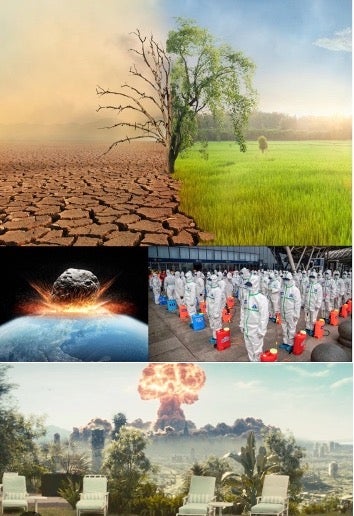 ENGL 306: The End of the World As We Know it: Writing (and Reading) the Apocalypse
ENGL 306: The End of the World As We Know it: Writing (and Reading) the Apocalypse
Monday 1:00-3:50 p.m.
>>Instructor: Justin Cronin
A course in creative prose writing, in which students will be considering the social, psychological, and metaphysical underpinnings of apocalyptic literature while embarking on their own end-of-the-world writing projects. We will read several touchstone novels of the genre, watch a number of films, and generally contemplate the notion that we are, in the end, just another species, roaming the earth until we stop. Students will produce two manuscripts for workshop, one fiction and one non-fiction, although there will be some latitude based on individual student interest. Seating in this course is limited.
Satisfies:
English Creative Writing Concentration (ECRW)
Creative Writing Minor (CREW)
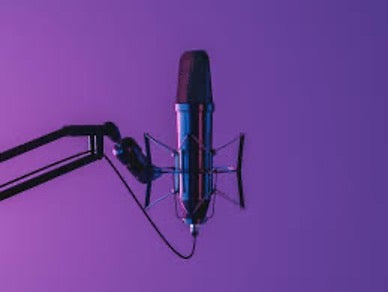 ENGL 308*: Podcasting
ENGL 308*: Podcasting
Wednesday 2:00-4:30 p.m.
>>Instructor: Ian Schimmel
This project-based course will lead us through an introduction to the ever-expanding medium of podcasting, specifically radio storytelling. We will unpack and discuss the techniques of practiced podcasters and use those elements in our own attempts at radio reportage: arts & culture shorts, vox pops, sonic ID’s, and short and long-form interviews. We will become proficient in capturing sound, interviewing strangers, writing scripts, pitching ideas for stories, and using GarageBand software to edit and shape that content. Seating is limited. English major specialization: Visual & Comparative Media (VCM)
Satisfies:
*D1
English Creative Writing Concentration (ECRW)
Creative Writing Minor (CREW)
English major specialization: Visual & Comparative Media (VCM)
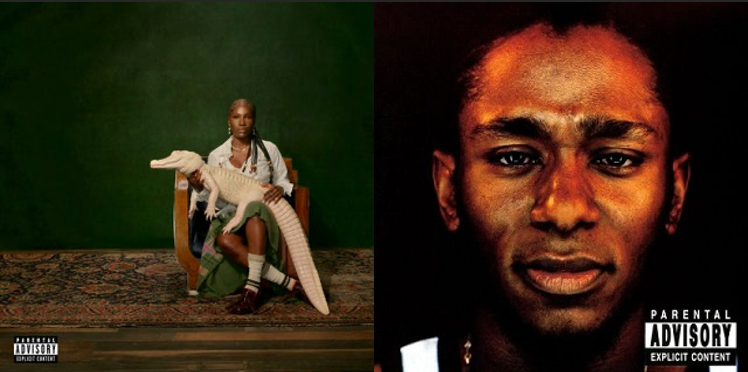 ENGL 309: Verses/Versus: 2024 vs. 1999 (A.K.A. Doechii's Alligator Bites Never Heal vs. Mos Def's Black on Both Sides)
ENGL 309: Verses/Versus: 2024 vs. 1999 (A.K.A. Doechii's Alligator Bites Never Heal vs. Mos Def's Black on Both Sides)
Wednesday 3:00-5:50 p.m.
>>Instructor: Kiese Laymon
In this course, we will consider "the context of the concept" in the concept albums by Mos Def and Doechii. We will specifically contend with the ways gender and race contort the confessional in both albums and time periods.
Satisfies:
English Creative Writing Concentration (ECRW)
Creative Writing Minor (CREW)
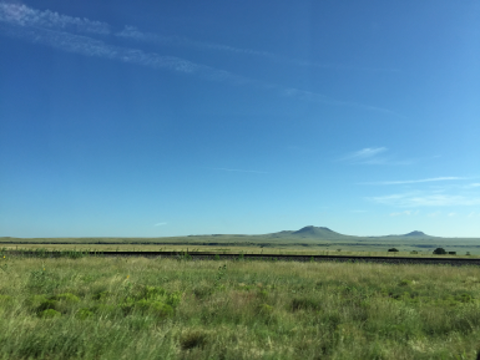 ENGL 310: Nature Writing (cross-list ENST 310)
ENGL 310: Nature Writing (cross-list ENST 310)
Thursday 1:00-3:50 p.m.
>>Instructor: Lacy M. Johnson
When we speak of nature,” Emerson wrote, “we have a distinct but most poetical sense in the mind.” Romantic poets in particular (as well as certain transcendental philosophers!) have encouraged us to think of nature as an undisturbed essence, a wildness, a “somewhere” that stands separate and apart from human influence. And yet, the idea of “nature” itself is the product of human imagination. In this creative writing seminar, we’ll explore some of the ways that creative nonfiction can become a vehicle for questions about how else we might imagine our relationship to the world, and we’ll look at some of the myriad ways these relationships have been documented in essays, memoirs, and narrative nonfiction. As we consider these texts, our emphasis will be on finding ways to reconsider received wisdom about “nature.” To that end, we’ll spend considerable time this semester outdoors, including, perhaps, engaging in field work, conducting interviews, foraging for wild plants, planting marsh grass, studying native ecosystems, and taking time to consider the ways we interrupt, intersect, and care for the living world around us. But more than anything else, this is a course in writing, and we will learn to write in ways that navigate the precarious terrain of personal experience, observation, science, research, memory, and facts. Students should be prepared to become mired in the complexity and contradictions of nature, including and especially our own. Seating is limited.
Satisfies:
English Creative Writing Concentration (ECRW)
Creative Writing Minor (CREW)
English major specialization: Science, Medicine, & the Environment (SME)
Environmental Studies Minor (ENST)
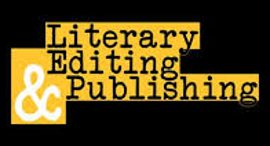 ENGL 313: Advanced Literary Editing & Publishing Practicum
ENGL 313: Advanced Literary Editing & Publishing Practicum
Tuesday 6:30-9:20 p.m.
>>Instructor: Ian Schimmel
In this advanced and intensive editing and publishing practicum, students will serve as senior editors for Rice’s nationally award-winning undergraduate literary magazine, R2: The Rice Review. Section editors will be responsible for: reviewing and critiquing hundreds of unique contributor submissions; facilitating effective and comprehensive editorial discussions; finalizing a set of publishable pieces in literature’s three main genres; becoming proficient in all phases of copy-editing, including both global edits and line edits; communicating with and assisting contributing writers throughout the editorial process; assisting with art pairings and magazine layout using Adobe’s InDesign; and organizing for The Rice Review’s spring launch event. To deepen our understanding of publishing and publishing history, students will also participate in several interactive field trips. Past trips have included visits to the Houston Printing Museum, the University of Houston's Gulf Coast Magazine, the Star Wheel Press at Fondren’s Woodson Research Center, ZineFest Houston, and the Texas Book Festival in Austin. We will use these experiences--as well as assigned readings and discussions--to reflect on the various ways in which literature is defined and promoted, the changing landscape of the publishing industry more broadly, and how the work of The Rice Review participates in that rapidly evolving space. Prerequisite is ENGL 313 or permission of instructor.
Satisfies:
English Creative Writing Concentration (ECRW)
Creative Writing Minor (CREW)
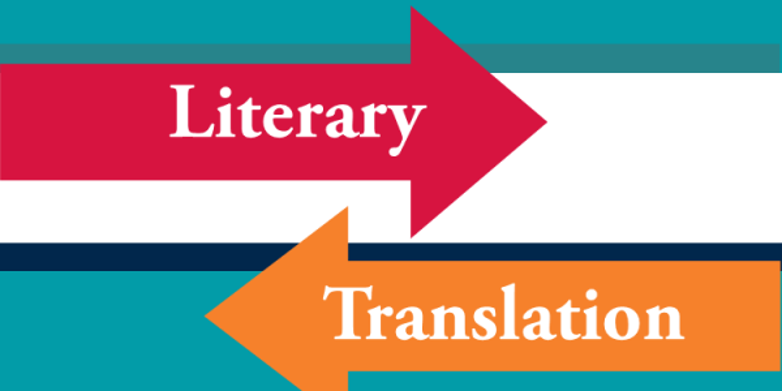 ENGL 315: Literary Translation
ENGL 315: Literary Translation
Thursday 2:30-5:00 p.m.
>>Instructor: Tomás Q. Morín
In this creative writing seminar, students will explore literary translation as an art form that engages close reading, creativity, inclusivity, and empathy in order to amplify voices from other languages and cultures. Work for the course will include a translation manifesto, a portfolio of creative work with original translations, and both critical and reflective essays. Students will be asked to submit a statement of language proficiency on the first day of class.
Satisfies:
English major core requirement (ENGL): Diverse Traditions (Race, Postcolonial & Gender/RPG)
English minor core requirement (ENGM): Diverse Traditions (Race, Postcolonial & Gender/RPG)
English major specialization: Culture & Social Change (CSC); Literature & Literary History (LLH)
ENGL 321*: Shakespeare
Tuesday, Thursday 4:00-5:15 p.m.
>>Instructor: Benjamin Parris
In this course, we will read a representative selection of Shakespeare’s plays written across his entire life and spanning a range of genres: comedy, tragedy, history, and romance. We will approach Shakespeare as a deeply philosophical thinker who foregrounds some of the most challenging social problems of his world, but also as a dramatist who encourages the development of a clearer and more honest perspective on how that world works and what our roles in it might be. Shakespearean drama can be a source of knowledge about the historical formation of certain institutions and systems—capitalism, colonialism, racism, biopolitics, sex/gender binarism, and the marriage contract—that continue to shape our lives today. But it is also an ethical resource for thinking about how to respond to and potentially transform social problems, unjust constraints, and human propensities for misguided judgments or mistaken courses of action. Our reading pace will be slow and methodical, covering a single play every two weeks. This is meant to encourage careful and sustained reading of the plays by students on their own, as well as providing plenty of time for close reading and thoughtful analysis of passages together as a class.
Satisfies:
*D1
English major core requirement (ENGL): Historical Foundations - periods before 1800
English minor core requirement (ENGM): Historical Foundations - periods before 1800
English major specialization: Literature & Literary History (LLH)
 ENGL 341*: Victorian Literature & Culture
ENGL 341*: Victorian Literature & Culture
Tuesday, Thursday 9:25-10:40 a.m.
>>Instructor: Logan Browning
We will explore some of the preoccupations and controversies of the Victorian era in Britain (1837-1901) through a study of three key literary texts (Dickens’s Oliver Twist [1837-38], Alfred Tennyson’s In Memoriam [1850], and Oscar Wilde’s The Importance of Being Earnest [1895]) along with a variety of verbal and visual texts drawn from a wide range of sources. These associated texts will include journalism, history, caricature, advertising, book and magazine illustration, and political speeches. Topics for reading and discussion will include Victorian ideas about the city, social organization, gender and sexuality, public health, empire (especially including Anglo-Indian relations), technological change (particularly the coming of the railways), and evolutionary science. The writing for the class will require both research and critical thinking with the goal of illuminating connections among our key and associated texts in order to enhance our understanding of Victorian Culture.
Satisfies:
*D1
English major core requirement (ENGL): Historical Foundations - periods before 1900
English minor core requirement (ENGM): Historical Foundations - periods before 1900
English major specializations: Culture & Social Change (CSC); Literature & Literary History (LLH)
ENGL 352: Death Between the Wars - Golden Age of Detective Fiction
Tuesday, Thursday 10:50 a.m.-12:05 p.m.
>>Instructor: Helena Michie
The “Golden Age” of Detective Fiction refers to the period between the two World Wars when (mostly English) authors produced an astounding variety of mysteries (mostly featuring murders). Authors like Agatha Christie and Dorothy Sayers popularized the “puzzle” mystery, which adhered strictly to rules of “fair play” set out by the Detective Club they helped to form and to police. This course will look at a number of texts from the period: some “cozy” or “locked room mysteries” unfolding in idyllic English villages, and some taking place in global settings. We will also be talking broadly about the genre and its attempts to find and impose tidy “solutions” in an era of increasing violence and unrest.
In this course, we will be exploring the historical concerns—for example, the threat of war, antisemitism, and changes in the cultural position of women— that gave rise to the detective novel. Our inquires will extend to more psychological matters, including our readerly fascination with murder, and the limits of the representation of violence. We will also be taking on questions about genre and subgenre, asking how the “puzzle” works with and against the police procedural and the realist novel, and how the figure of the detective changes over time. We will also spend some time on the legacy of the golden age mystery in television and film.
Satisfies:
English major core requirement (ENGL): Diverse Traditions (Race, Postcolonial & Gender/RPG)
English minor core requirement (ENGM): Diverse Traditions (Race, Postcolonial & Gender/RPG)
English major specializations: Culture & Social Change (CSC); Literature & Literary History (LLH)
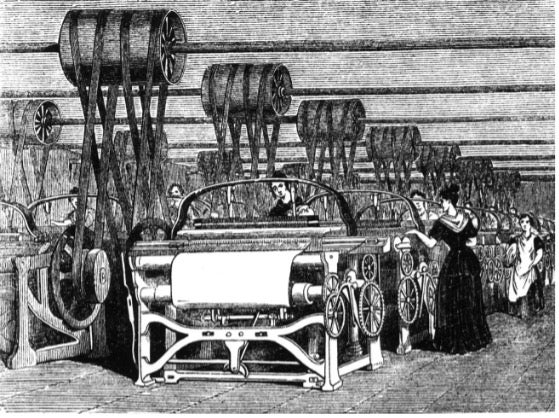 ENGL 360*: American Literature Before 1860 - The Making of the American Working Class
ENGL 360*: American Literature Before 1860 - The Making of the American Working Class
Tuesday, Thursday 8:00-9:15 a.m.
>>Instructor: Clinton Williamson
This course will survey American literatures spanning from the Age of Discovery to the Atlantic Revolutions and up through the Civil War (or, the Second American Revolution). Through readings of explorer testimonials, trial transcripts, journal entries, narratives of enslavement, utopian political treatises, dime novels, and major works of American fiction and poetry alongside field defining pieces of political economy and history from below, we will focus upon the coming-into-being of the American working class as a distinct cultural formation resistant to multiple forms of exploitation. Throughout, we will strive to discern how the particular social, political, and economic conditions of early America gave rise to a distinct fracturing between the those who sought to maintain the customs of the commons amidst the rise of a private property regime and those who sought to shape an American polity around the subordination of labor to an ever consolidating and expanding capital.
Satisfies:
*D1
English major core requirement (ENGL): Historical Foundations - periods before 1800
English minor core requirement (ENGM): Historical Foundations - periods before 1800
English major specializations: Culture & Social Change (CSC); Literature & Literary History (LLH)
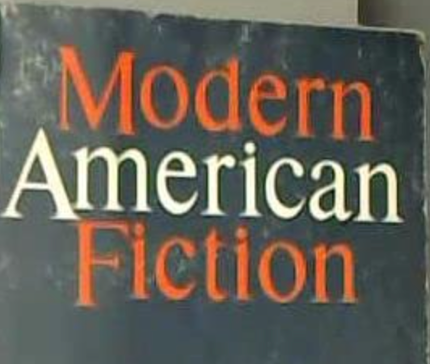 ENGL 362*: Modern American Fiction
ENGL 362*: Modern American Fiction
Tuesday, Thursday 4:00-5:15 p.m.
>>Instructor: Scott Derrick
This course exams novels and short stories and films from the beginning of the twentieth century to 1960. It balances important, well-known texts of the period with diversities in terms of form, focus, and location. Students will write two short papers, prepare a group presentation on one of a broad range of possible issues in the period, and produce a somewhat longer final paper or project.
Satisfies:
*D1
English major specializations: Culture & Social Change (CSC); Literature & Literary History (LLH)
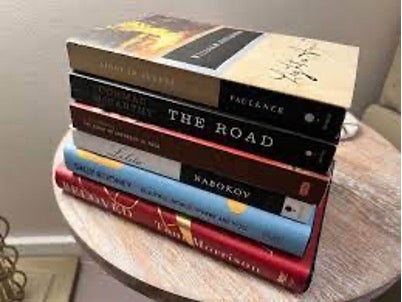 ENGL 363*: U.S. Novel Post-World War II
ENGL 363*: U.S. Novel Post-World War II
Wednesday 4:00-6:30 p.m.
>>Instructor: Krista Comer
The U.S. novel after World War II, is among the most exciting bodies of literature to read and talk about. In terms of formal experimentation, changing structures of literary production including the emergence of widespread creative writing programs, and new writers who come to prominence with the Civil Rights movements, we have a lot to consider. And that’s before we get to the 21st century! Our strategy for covering this ranging period of time and innovation of genre will be to combine an overview perspective with close-in slow reading of selected major writers.
As a D1 course suitable for majors and non-majors alike, we balance a broad training in humanities skills with in-depth consideration of just a few major writers. Just a few, so we can read them with sophistication. We will do a self-assessment of our writing and reading skills at the outset so students can think about where they might want to fine tune improvements. Our writing workshops will help us to get to know one another, trade tips, and enjoy our joint talents.
Toward the end of the semester, we will read a text selected by students. Before we get there, we work with American greats: Marilynne Robinson, Toni Morrison, Cormac McCarthy, and N. Scott Momaday.
Satisfies:
*D1
English major specializations: Culture & Social Change (CSC); Literature & Literary History (LLH)
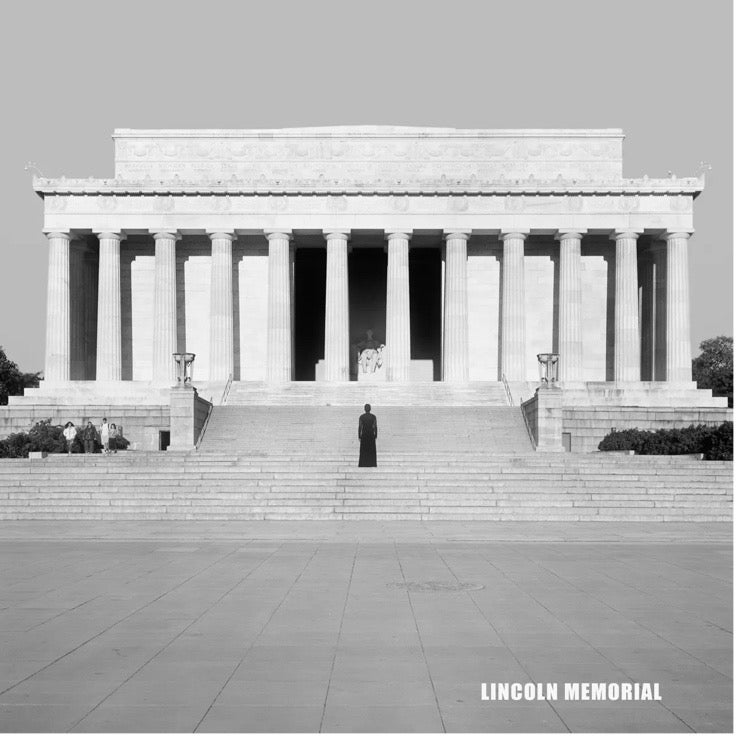 ENGL 366: Narratives of Freedom and UnFreedom
ENGL 366: Narratives of Freedom and UnFreedom
Tuesday, Thursday 10:50 a.m.-12:05 p.m.
>>Instructor: Eve Dunbar
This course explores American literature that narratively challenges the national construction of freedom, which is contingent upon holding a group of people as "unfree." From women, enslaved people, prisoners, queer folks, and children, we will consider how people marked as “unfree” are narratively imagined as co-creators of humanity, freedom, and democracy despite the nation. Starting in the 19th century, we will expand on our understanding of the "slave narrative,” which is often exclusively associated with Black people enslaved in the American South, to examine how Black and non-Black writers employ notions of freedom and "unfreedom" to make claims on and/or critique the United States. This course will move into the 21st century to consider if and how freedom and "unfreedom" have shifted in the American literary imagination.
Satisfies:
English major core requirement (ENGL): Diverse Traditions (Race, Postcolonial & Gender/RPG)
English minor core requirement (ENGM): Diverse Traditions (Race, Postcolonial & Gender/RPG)
English major specializations: Culture & Social Change (CSC); Literature & Literary History (LLH)
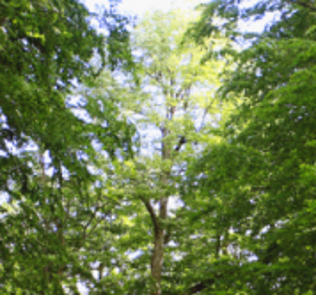 ENGL 368*: Literature & the Environment (cross-list ENST 368)
ENGL 368*: Literature & the Environment (cross-list ENST 368)
Monday, Wednesday, Friday 1:00-1:50 p.m.
>>Instructor: Matthew Schneider-Mayerson
A course that asks the question: How does literature express or shape environmental values? In this class, we will read American fiction and nonfiction exploring the relationship between human and nonhuman nature. Course themes may vary.
Satisfies:
*D1
English major specializations: Culture & Social Change (CSC); Science, Medicine & the Environment (SME)
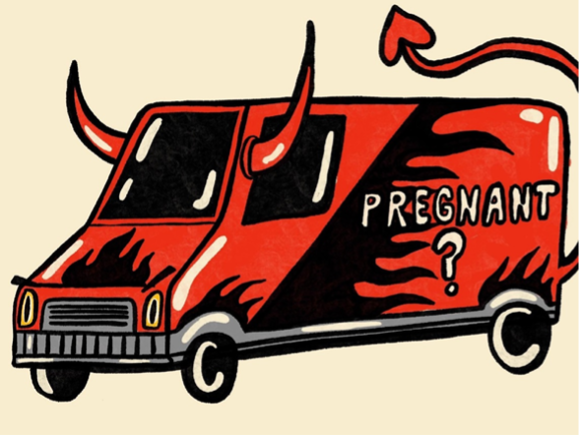 ENGL 378: Politics of Reproduction: Sex, Abortion & Motherhood (cross-list MDHM 378)
ENGL 378: Politics of Reproduction: Sex, Abortion & Motherhood (cross-list MDHM 378)
Monday, Wednesday 2:00-3:15 p.m.
>>Instructor: Carly Thomsen
(Image: Devil Bus by Rayn Bumstead)
Reproductive justice impacts EVERYONE! Birth control, sexual health education and sexual pleasure, foster care, abortion, giving birth, immigration, incarceration, environmental justice, care work, the medical system, aging parents—these social and cultural issues make clear that thinking with reproduction is crucial for understanding and upending the social order more broadly. Put another way, cultural ideas about reproduction shape how we experience and understand gender and sexuality and ideas about gender and sexuality influence how we view reproduction. As such, we cannot challenge dominant ideas about gender and sexuality without critical conversations about reproductive issues. Because requirements for being considered a “good” woman are so closely connected to what it means to be a “good” mother, any analysis of gender requires critical engagement with ideas about reproduction—even for those of us who plan to avoid parenthood or do not have heterosexual sex. This class focuses on the politics of reproduction in the twentieth and twenty-first centuries and the social relations that shape reproductive issues today, centering questions about race, class, ability, and geography throughout. Together, we will take on the paradoxes, horrors, complexities, and joys of reproduction.
Course texts include traditional academic articles as well as cultural texts such as film, theater, viral social media clips, and so on. For a final group project, students will create board games that can move the course ideas beyond our classroom. Open to all Rice students. No prerequisites required.
Satisfies:
English major core requirement (ENGL): Diverse Traditions (Race, Postcolonial & Gender/RPG)
English minor core requirement (ENGM): Diverse Traditions (Race, Postcolonial & Gender/RPG)
English major specializations: Culture & Social Change (CSC); Science; Medicine; Environment (SME)
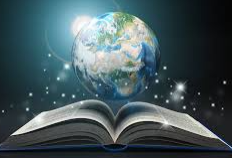 ENGL 383*: Global Fictions
ENGL 383*: Global Fictions
Monday, Wednesday, Friday 1:00-1:50 p.m.
>>Instructor: Zainab Abdali
This course has two components: one, it looks at recent fiction in English by U.S., British, and international writers that deal with global and transnational issues; and two, it studies the work of recent cultural critics who provide new understandings of an increasingly networked world as well as the imaginative and narrative tools --fictional, artistic, cinematic , electronic and visual--that we use to process the fast-paced realities of contemporary globalization.
Satisfies:
*D1
Analyzing Diversity (AD)
English major core requirement (ENGL): Diverse Traditions (Race, Postcolonial & Gender/RPG)
English minor core requirement (ENGM): Diverse Traditions (Race, Postcolonial & Gender/RPG)
English major specialization: Culture & Social Change (CSC)
 ENGL 411: Research Workshop
ENGL 411: Research Workshop
Friday 1:00-3:50 p.m.
>>Instructors: Margarita Castromán; Lacy M. Johnson; Kiese Laymon
The Senior Research Workshop is an immersive research and writing methods course that prepares Rice English majors to produce a significant piece of critical or creative work. Each year, the course will be co-taught by members of English faculty members from different areas of expertise, including creative writers.
The Spring Research Workshop functions as a more hybridized course, with some classes exploring topics relevant to the entire cohort, and others geared towards smaller, workshop-style discussions. At strategic points throughout the Spring writing process, students will meet individually with one of the faculty instructors, as well as with an outside faculty reader in their field of interest. All students will have the opportunity to present and celebrate their work at an end-of-the-year departmental symposium.
The culmination of the course is an in-depth critical or creative work with the potential for public-facing components (e.g., performances, websites, e-zines, podcasts, community events), as well as collaborations with a student’s secondary major or minor. While some projects will grow out of previous coursework in students’ area of specialization, or in the creative writing concentration, we would hope that others will use the project as a way articulate creative intersections between your other intellectual pursuits and/or your professional areas of interest.
Similar to other senior design and research courses throughout the university, the Senior Research Workshop engages students in the deeper and more rewarding processes of sustained writing and research. The course helps students regard both forms of inquiry as powerful skills within their professional set.
Note: For students who intend to graduate in December or who plan to study abroad in their senior year, the senior seminar may be begun in the junior year and completed in the senior year. Special circumstances such as this one will be advised by the director of undergraduate studies. We recommend that graduating seniors in the English major and English major concentration understand their requirements and opportunities.
Satisfies:
English major core requirement (ENGL): Diverse Traditions (Race, Postcolonial & Gender/RPG)
English major concentration requirement in creative writing (CREW): Fundamentals of Research
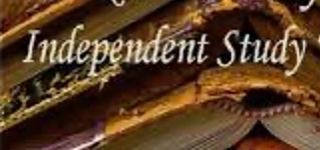 ENGL 493.000: Independent Study
ENGL 493.000: Independent Study
Spring meeting times are to be determined by an English faculty member and the student (via permission of instructor; credit variable 1-6)
A course designed for students who want to pursue intensive semester-long study of a particular topic. Students must identify and receive the approval of an English department faculty member and complete a special registration form as directed. Registration is by permission of instructor.
Satisfies: determined by the director of undergraduate studies
ENGL 493.001: Independent Study-R2/Section Editors
Tuesday 6:30-9:00 p.m.
>>Instructor: Ian Schimmel
ENGL 493.002: Independent Study-R2/Editors-in-Chief
Tuesday 6:30-9:00 p.m.
>>Instructor: Ian Schimmel
Notes:
ENGL: English Major
ENGM: English Minor
CREW: English Creative Writing Minor
ECRW: English Creative Writing Concentration
*D1: approved for Distribution Group 1
AD: Analyzing Diversity
English Department Required Field/s satisfied:
Diverse Traditions: Race, Post-colonial & Gender (RPG)
Historical foundations: pre-1800/1900 (specifically as noted for pre-1800)
Meets Rice English major specialization/s:
Culture & Social Change (CSC)
Literature & Literary History (LLH)
Science; Medicine & Environment (SME)
Visual & Comparative Media (VCM)
Seating is limited in most creative writing courses. Registration for even-numbered sections is restricted to students who have declared the Creative Writing Major Concentration (ECRW); registration for odd-numbered sections is open to all undergraduate students in priority order.

